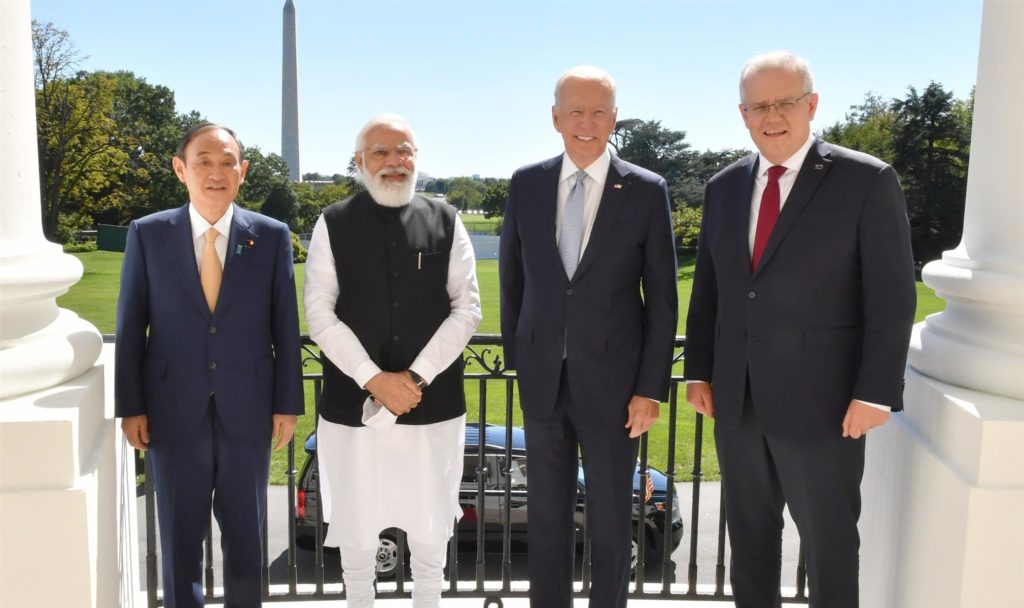
By Manik Mehta
NEW YORK, Sept 27 — The Association of Southeast Asian Nations (ASEAN) is likely to play a critical role in the soon-to-be-released new Indo-Pacific strategy of U.S. President Joe Biden’s administration.
U.S. Secretary of State, Anthony Blinken, hinted this in recent talks with the foreign ministers of the ASEAN member countries.
The argument put forth by some strategic experts in Washington and New York is that Biden ordered the U.S. withdrawal from Afghanistan in order to “dedicate” the resources and energy to the Indo-Pacific which could possibly become a theater of a possible showdown between the U.S. and its allies, and China. The Indo-Pacific is seen as a priority in the strategic calculations of the Biden administration.
Blinken who had a meeting with the foreign ministers of the ASEAN member countries in New York on the sidelines of the United Nations General Assembly (UNGA), hinted – and also vaguely suggested by a senior U.S. official in conversation with Asian journalists – that the contours of the new strategy would emerge in autumn. The strategy would be based and amplified on “our shared vision” of a free, open, interconnected, resilient and secure Indo-Pacific region”. ASEAN is expected to play a central role in the region’s strategy.
Blinken underscored that the strategy will reflect “Southeast Asia’s importance to the Indo-Pacific region and the critical role that ASEAN plays in determining the region’s future”.
While the ASEAN region will collectively be linked and harnessed to the Indo-Pacific strategy, experts predict that Washington will probably try to build and expand strategic ties, as a start, with Indonesia, the Philippines and Vietnam because of their size and growing defense ties; these links will be expanded to include other ASEAN members and push towards greater cohesion.
It is interesting to note that Blinken’s reaching out to ASEAN members was followed by a high-profiled in person summit meeting on Friday (Sept.24) between President Biden and the Prime Ministers of India (Narendra Modi), Japan (Yoshihide Suga) and Australia (Scott Morrison). The four form the “Quad” which is, however, being portrayed as a “partnership” that can participate in humanitarian, scientific and economic cooperation. Talk is the military aspect of the cooperation between the four is being played down so as not to provoke alarm from China.
Biden, who has been criticized for not showing clarity in his China strategy, is being urged to articulate in clear terms his strategic goals and means of countering China which has built up military and naval bases in the South China Sea in an attempt to preempt the claims to the oil and gas-rich islands of other nations such as Brunei, Malaysia, the Philippines, Vietnam and also Taiwan.
Referring to this first-ever Quad summit meeting, White House press secretary Jen Psaki had maintained in an advance statement to journalists that the Biden administration’s “priority of engaging in the Indo-Pacific, including through new multilateral configurations to meet the challenges of the 21st century”. She had also stated that the four leaders would focus on issues such as combatting COVID-19, addressing the climate change crisis, cooperation on emerging technologies and cyberspace, and promoting a free and open Indo-Pacific”. Prior to the in-person meeting, the four leaders had met – virtually – in March.
In addition to the quartet summit, the Indo-Pacific strategy also figured in bilateral meetings between Biden and the three prime ministers individually.
Contrary to the foreign policy isolationism which Biden’s predecessor, Donald Trump, pushed the U.S. into, Biden appears to be demonstrating Washington’s resolve to strengthen its Indo-Pacific presence in partnership with the players in the region.
Nevertheless, both the U.S. President Biden and Chinese President Xi Jinping mellowed down their language as they addressed the UNGA meeting. While Biden emphasized, in an obvious attempt to assuage Chinese unease, that “we are not seeking a new Cold War or a world divided into rigid blocs”, Xi harped on the oft-heard claim that “China has never, and will never, invade or bully others or seek hegemony”.
However, U.S. security experts scoff at such claims, recalling that China has had several conflicts started by it, including the latest attack on India’s Ladakh region or the constant threats to Taiwan and its invasion of the latter’s airspace. Just a few days back, China sent 24 fighter jets toward Taiwan in a high-pitched display of force after the island announced its intention to join a Pacific trade group, the Comprehensive and Progressive Agreement for the Trans-Pacific Partnership (CPTPP).
The Indo-Pacific is expected to become a major playground of big power games. The ASEAN region, could be affected by its dynamics. Garima Mohan of the Asia program of the German Marshall Fund think tank summed it well: “… one thing is certain … that everyone is pivoting toward the Indo-Pacific.”
–WE